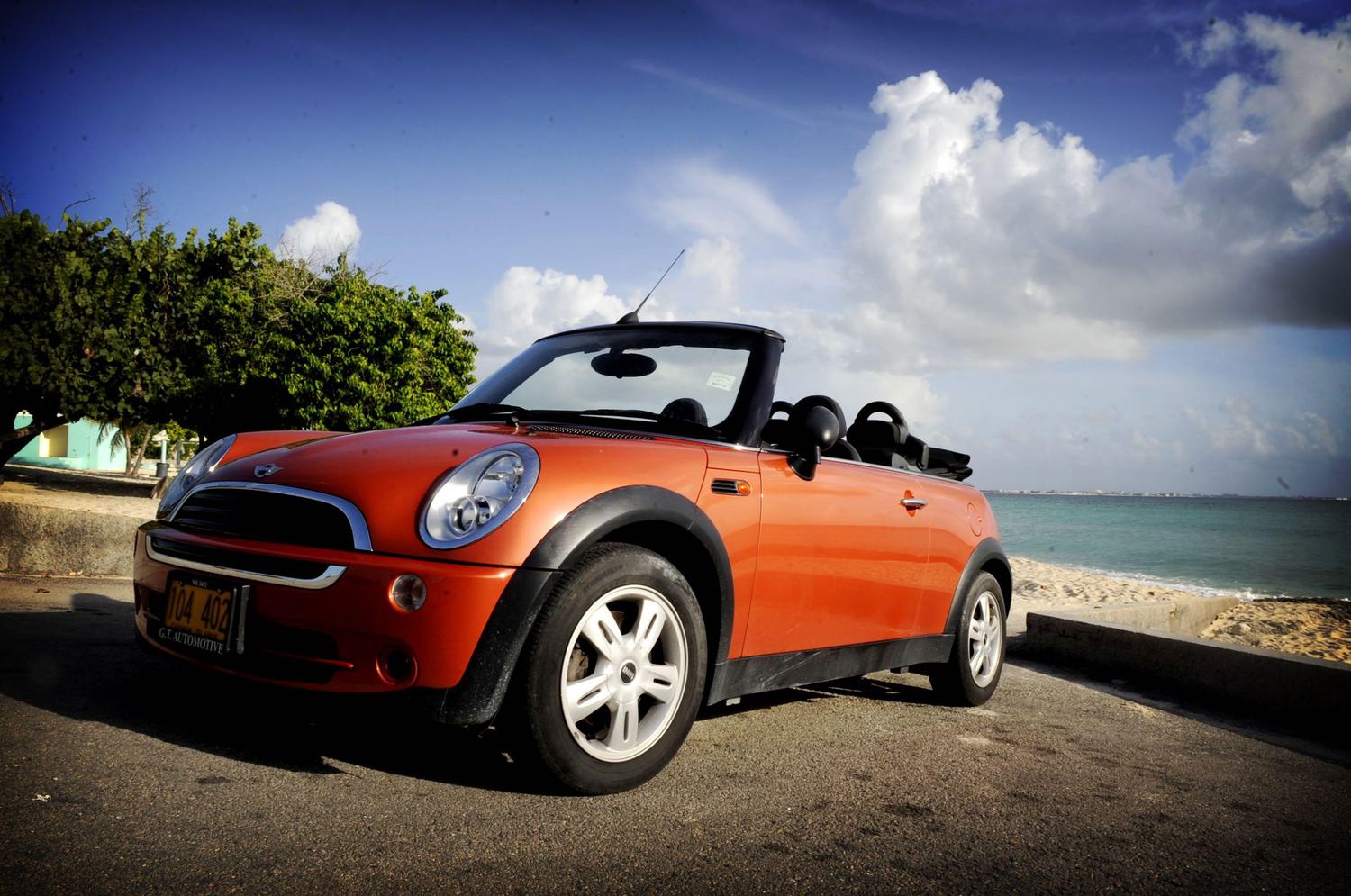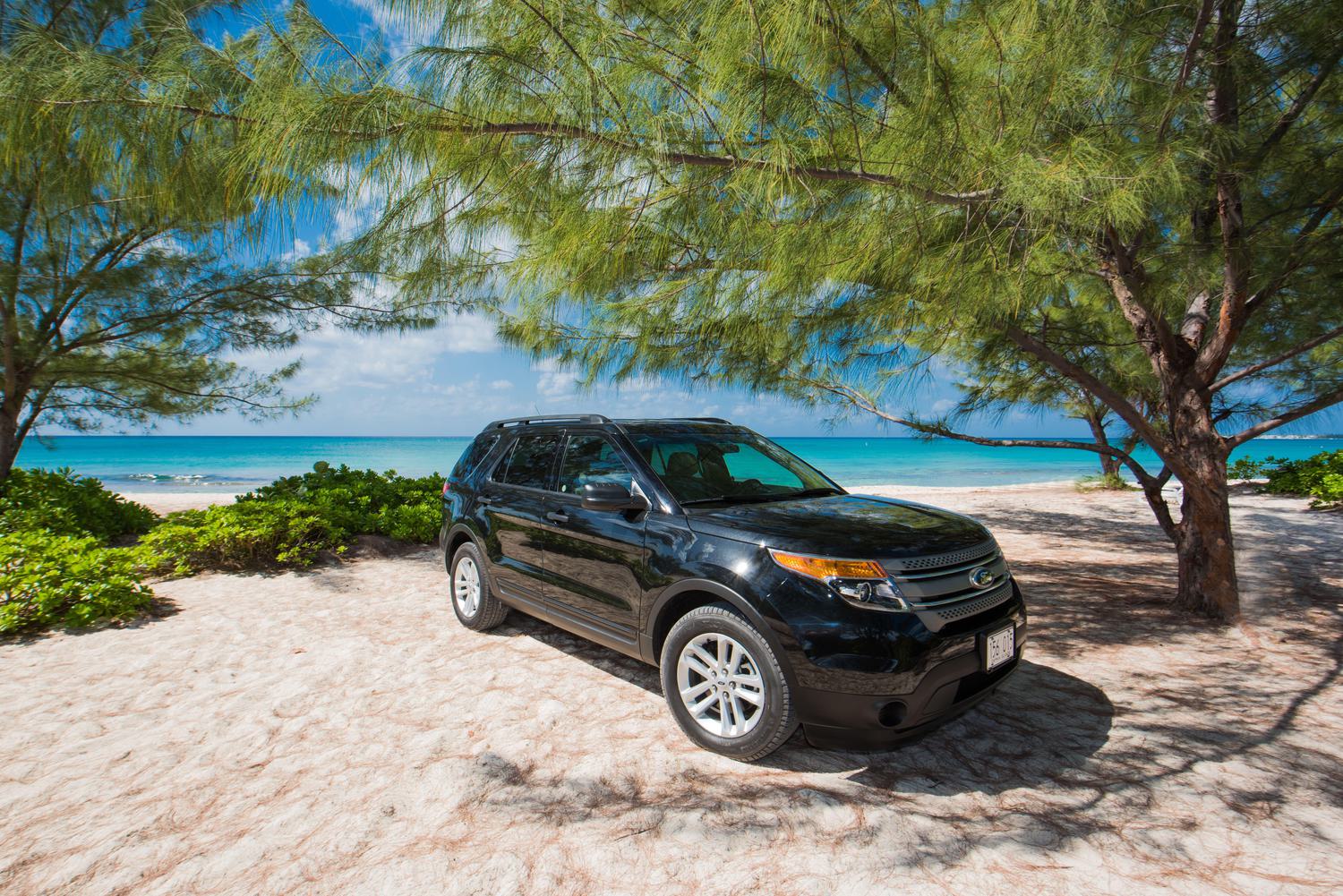If you would like to import a car into the Cayman Islands, a brief summary of the process is as follows: you will need to get the car to the Port of Miami or Tampa, clear US Customs and book the car on the next ship sailing to Cayman.
On This Page
Note that if you are importing a vehicle from Japan it will come through the port in Jamaica and then to Cayman.
In the meantime contact the shipping company/agent and take all your paperwork to Customs to pay duty (0% – 42% depending on the type and value of your car), plus a one-time fee for future car disposal (see more on the Environmental Disposal Fee below). Following that, head to the Port Authority to pay the Port handling fees. You can then collect your car immediately once it arrives. You can hire a customs broker to help you with this process, as it can be fairly complicated and time consuming. For more information go to www.customs.gov.ky.
Keep in mind that the Island is hot, so a light coloured car with good air conditioning will be much cooler and easier to sell in due course. Dark coloured cars with manual transmission do not sell well in Cayman since most students learn to drive automatic cars and have no clue how to drive a manual transmission car.
Clearing Customs in the U.S.
It is the owner’s responsibility to clear their car through US Customs. Alternatively, you can appoint a customs broker to do so on your behalf.
The following customs brokers are based in Miami and can help:
Shipping Your Vehicle to Cayman
The average cost for shipping a mid-sized vehicle (approximately 500 cubic ft or less) with either Seaboard Marine or Thompson Line is US$2,000 (without insurance). They do recommend you add insurance. Please contact either of these companies for a quotation.
US Customs Law states that the Vehicle Title for used cars must be stamped by US Customs for a 72-hour clearing period (excluding the day of delivery, shipping and weekends) prior to the shipping date. Please note that unless you’re buying your vehicle straight from the manufacturer, it is considered ‘used’ under US Customs Law. US dealerships will often gift a full tank of fuel with purchases, however, be aware that the vehicle will not be allowed to leave the US with more than a quarter tank. As this fuel limit can vary between shipping companies, it is best to ensure that your tank is completely empty. No personal effects may be placed inside the vehicle when shipping.
We recommend you use a broker to assist you when shipping a car to Cayman. They will help you gather together the documents, such as the car title, letter of intent, power of attorney and bill of lading. All vehicles must be delivered to the Port (or consolidator’s bonded warehouse) before US Customs clearance. Which port you take your car to will depend on the shipping company you choose to ship with.
Three shipping companies ship to Grand Cayman:
Insuring Your Car
Car insurance is legally required in the Cayman Islands and you'll need it once your new vehicle arrives. You cannot license your vehicle without it and can be fined for driving a vehicle that is uninsured. Cayman has many insurance companies that can guide you on the best way to insure your vehicle. Some insurers have strict rules, such as not offering fully comprehensive coverage for cars older than five years. For this reason, it’s a good idea to contact one of the insurance companies listed below before purchasing the car you’re interested in.
More on car insurance
Vehicle Importation Restrictions
The Customs and Border Control (Prohibited Goods) (Amendment) Order 2023 prohibits any vehicles with a model year of eight years or older from entering the Cayman Islands. There are exemptions on certain commercial, agricultural and industrial-use vehicles, classic and antique motor cars. Details of the law can be found here.
Import Duty Costs
Since the Cayman Islands does not have direct taxation, the Cayman Islands Government charges import duty on all vehicles being imported into the Islands as a way of raising revenue. The percentage charged depends on the value and type of the car.
The import duty is calculated on what is known as the CIF value. This is the cost of the car plus the insurance premium for its journey by ship, plus the sea freight charges. 100% electric vehicles and hybrid vehicles are charged at a different rate depending on their CIF value. 100% electric vehicles are charged a maximum of 10% of their CIF and hybrid vehicles are charged a maximum of 15% of their landed CIF. All pick-up trucks, unless hybrid and electric, are rated at 29.5%.
Here is a list of import duties based on CIF value:
CIF up to CI$20,000 = 29.5%
CIF up to CI$25,000 = 32%
CIF up to CI$30,000 = 37%
CIF from CI$30,001 and up = 42%
Duty Costs of Importing An Electric or Hybrid Car
Here is a list of import duties on electric and hybrid cars for personal use based on CIF value:
Electric Vehicles:
CIF up to CI$29,999= 0%
CIF up to CI$60,999 = 5%
CIF from CI$61,000 = 10%
CIF from CI$100,000 = 15%
Hybrid vehicles:
CIF up to CI$29,999 = 10%
CIF up to CI$60,999 = 12%
CIF from CI$61,000 = 15%
CIF from CI$100,000 = 17%
Environmental Disposal Fee
An Environmental Disposal Fee is added to cover the cost of disposing of a vehicle in years to come. If a vehicle is valued at CI$12,000 (CIF) or less when it is imported then an environmental disposal fee of CI$1,000 plus a waste handling fee of CI$250 will be charged in addition to duty of 29.5%.
Clearing Customs in Cayman
Once your car has landed at the port in Cayman, the shipping company will notify you. You can use a customs broker to clear your car through Cayman Customs, and they will handle the following steps on your behalf.
If you are doing the customs clearance yourself however, the next steps are:
- If you are not yet registered with Customs, first you will need to pre-register on the Customs Online System (COLS) website (www.customs.gov.ky) and there you will need to complete the form and upload the supporting PDF documents. Once you submit the request they will either approve the registration or they will advise via email what other documents are required. If approved, you will be given a COLS trader identification number (TIN) and login information.
- Collect paperwork from the shipping company and pay shippers.
- Log in to the COLS website and follow the process to declare your shipment. Supporting PDF documents needed will include bill of lading, title of the vehicle and the official invoice/valuation. Before submitting, you will have the choice to review and confirm the information. Confirming the declaration will constitute as your electronic signature which will be legally binding. This process is subject to change as Cayman Customs is continually upgrading the system.
- Once approved, Customs will send you an email. Then you will go to Customs on Owen Roberts Drive, Tel: (345) 949 4579, pay the duty for your vehicle and pay the environmental fee.
- Obtain car insurance (you will need proof of insurance on the vehicle before picking up the car from the Port).
- You’ll then need to go to the Port Authority Warehouse on Portland Road in Industrial Park where you will present the Customs clearance documents and be charged a fee, depending on the weight of your vehicle.
- Pick up your vehicle.
- Go to the Department of Vehicle and Driver’s Licensing (DVDL) and follow the inspection and licensing process. They will also need to see the vehicle’s certificate of title.
Note: costs depend on the type of vehicle being licensed. Also be aware that, as per the Cayman Islands’ Traffic Law, it is an offence to keep a vehicle in the Cayman Islands without it being registered with the DVDL. See the Licensing Your Vehicle section for more.





